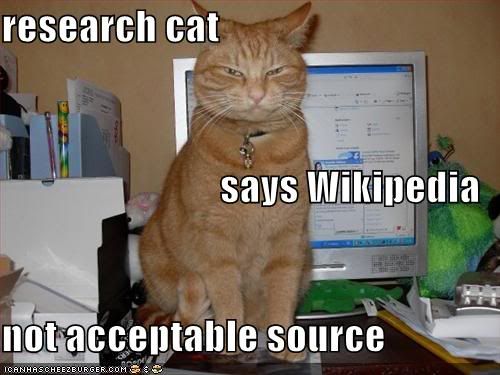The Zooniverse is Expanding
On Thursday, June 2, I attended a presentation to the Minnesota Astronomical Society by University of Minnesota professor Lucy Fortson, formerly of the Adler Planetarium in Chicago. The topic of her presentation was, “Birth of the Zooniverse: How Citizen Scientists are Taking on Research from Galaxies to Climate Change.”
Galaxy Zoo
The Zooniverse grew out of Galaxy Zoo, a scholarly effort to get many pairs of eyes analyze and create a taxonomy for the “data flood” of deep field and ultra deep field galactic images taken by the Hubble observatory. In contrast to the thousands of bright galaxies photographed onto glass plates by the Palomar Sky Survey in the 1950s, the number of digital photographs of bright galaxies needing identification exceeded one million, much more than is possible for any graduate student to handle.
Human beings understand relationships via taxonomies. When a field is largely unknown, and the development of galaxies is still not understood, scientists first gather large amounts of data, then sort and classify it by carefully defined criteria. (Computers also do a wonderful job of storing data, and associating data in relationships that nevertheless must first be defined by human beings.)
Astronomers attempted to have algorithms identify and classify these galaxies, using color as a proxy for shape. Computers, however, are great at crunching numbers but still have only limited success at pattern recognition and matching. Meanwhile, this “data flood” was producing blue ellipticals and red spirals, creating contingencies that crossed the color proxy parameters set for the algorithms. Neural networking also had limited success, and duplicated the same problems. Therefore, the solution was to find volunteers without astronomical knowledge, who would provide fresh eyes, to identify spiral armed, spiral barred, and elliptical galaxies among the images.
In 2007 the astronomers launched a website, Galaxy Zoo, which they expected to gather a few thousand volunteers at most. The response from the public was overwhelming, and it crashed their servers. Hundreds of thousands of ordinary people from around the world participated (the astronomers saw a marked dip in classifications when the Egyptian government shut down the internet for a while), and soon the questions were coming in from the volunteers. Unable to answer them all, the astronomers set up a forum for the volunteers.
Also, in order to eliminate empty clicks, false identifications, and practical jokers or random clicks by children, statistical analysis is applied to the results.
Known unknowns and unknown unknowns
Here is where the project truly becomes interesting for me: unable to get their specific questions answered, this increasingly astronomically literate community, which started out with very limited astronomical knowledge, began to do literature searches of refereed journals. They began to make discoveries celestial objects predicted but not yet observed. One of the volunteers, frustrated with the “hunt and peck” method of going through this “data deluge,” even wrote a query of the Sloan site’s spectral data.
The project has yielded 20 peer-reviewed scientific papers—including the MNRAS papers—and one comic book. (I can’t help but wonder what Guillermo Gonzalez was doing all this time if he was serious about attaining the qualifications for tenure.)
New research projects have been designed around these lessons learned, and thus the Zooniverse was born. New projects include an avian and entomological project with the Cleveland Museum of Natural History, a study of ocean temperatures recorded in British ship logs during World War I (climate change is driven by the oceans, yet most of our data comes from land-based temperature sensors, yet the British recorded the ocean temperature faithfully every four hours), and the reconstruction and translation from the Greek of the Oxyrhynchus Papyri from Egypt.
The role of the citizen scientist
It must be stressed that, when one uses nonexperts as citizen scientists, it is imperative that their roles be clearly defined and coherently limited by a strict definition of “citizen science.” There were also strict parameters set (spiral versus elliptical, etc.). This is not a top-down agenda to employ vulnerable adults seeking assuagement of eschatological fears in a campaign to get “new” (fringe or pseudo-) science into high school curricula, or a one-stop shop for bullet points to provide “corroboration” for a foregone conclusion. For example, though there are an abundance of amateur astronomers, these volunteers were not solicited to gather images, but to identify them based on good faith eyeballing. Eyeballing identifies simple shapes and colors (not “complexity”) and should only be used for this. Naïve eyeballing by nonexperts was expressly sought after in this particular case for a particular reason: to eliminate the bias that experts would show in performing what for them would be considered a menial task.* To the public, however, looking at images of galaxies and identifying their shape was a meaningful exercise that led to open-ended inquiry and, importantly, greater information literacy.
It happens: despite the fact that the word “archive” [sic] is used many different ways in the vernacular, the second I see that word I focus immediately on it. (Actually, use of the word "archive" is a giveaway, as professionals use "archives" even in the singular.)
Labels: archives, astronomy, citizen science, Galaxy Zoo, information literacy, Minnesota Astronomical Society, scientific method, Zooniverse









